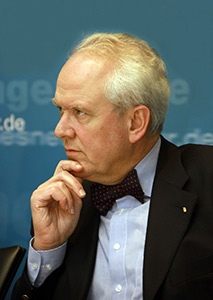Concept |
||||
Understanding Regulatory Choice and New Economic Zones In a globalized, interconnected economy in which frictionless movement is the new normal, governments, corporations and “talent” are all confronted with hard choices about how to deploy their resources to maximum advantage. The emergence of global markets means that talent is free to pursue opportunities wherever they arise. Corporations are able to relocate to areas where they can pursue innovation, growth and social opportunity without red tape and excessive regulation. From the perspective of government, policy makers are confronted with the daunting task of implementing a regulatory framework that attracts the best entrepreneurs and talent in order to promote sustainable economic development. So far, a popular model for governments has been to attempt to emulate Silicon Valley and its unique combination of dynamic spirit and innovative environment. Significant investment has been made in seeking to identify the distinctive elements of this eco-system, and transplanting them to other parts of the world. Unfortunately, the notion of creating the next Silicon Valley has not succeeded nearly as often as expected, leaving governments and other stakeholders frustrated and disappointed with the results. It should therefore come as no surprise that a new approach seems to be emerging around the idea of economic zones. Consider Japan, where one of the main pillars of “Abenomics” has been the designation of a number of municipal areas that are granted special powers to deregulate everything from medical care to agriculture. The list includes Japan’s well-known cities, such as Tokyo (promotion of foreign investment) and Osaka-Kyoto-Kobe (a focus on medical research). In addition, Fukuoka - the largest city on the island of Kyushu - has been selected to attract fast-growing start-up companies by offering tax benefits and a rethinking of labor laws. These deregulatory measures aim to provide incentives to entrepreneurs to relocate to one of the most dynamic regions of Japan. There is something to Fukuoka’s deregulatory approach. The question is, however, whether the focus on fiscal and labor laws is sufficient. Perhaps the government might increase the success rate in attracting entrepreneurs and start-up companies if it chooses to introduce targeted regulations or deregulation focused on specific industries and technologies. Examples of such an approach to economic zones are the development of a “Drone Valley” with special laws and guidelines for the use of drones, and economic zones that remove regulation in order to attract more drug R&D, thus increasing the incentives for corporations and talent to set up shop in a particular region. California’s decision to grant licenses for driverless cars is another instance of this contemporary trend towards targeted regulation. This conference aims to contribute to the nascent debate in this area by bringing together policy makers, entrepreneurs and academics to examine various legal issues related to regulation, deregulation and the allocation of choice in these new economic zones. By fostering a dialogue between the various stakeholders, the conference organizers hope to generate policy relevant proposals appropriate for this rapidly developing field of economic and business regulation. |
||||
|



